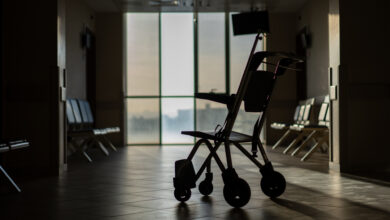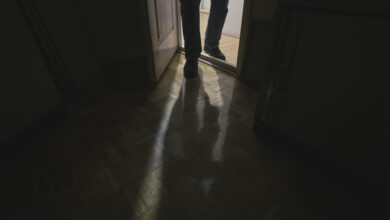Bad sleep? Study says you’re more sensitive to pain the next day

Poor sleep is a pain in the leg. Literally.
University of California Berkeley researchers have uncovered a link between poor sleep and increased sensitivity to pain.
The team applied uncomfortable levels of heat to the legs of 25 undergraduates, first after a full night’s sleep then after a sleepless night.
After sleeping well, the participants reported thermal discomfort at around 44C. But for sleep-deprived subjects, this dropped to around 41.6C.
PhD student Adam Krause said this shows sensitivity to pain had increased after inadequate sleep. “The injury is the same, but the difference is how the brain assesses the pain without sufficient sleep.”
Brain scans revealed 'neural glitches' in the sleep-deprived brain that can intensify and prolong pain. But poor sleep didn’t only affect pain-sensing regions in the brain; it also blocked natural analgesia centres.
The research team was surprised to uncover ramped-down activity in the nucleus accumbens, which increases dopamine levels to relieve pain.
“The results clearly show that even very subtle changes in nightly sleep – reductions that many of us think little of in terms of consequences – have a clear impact on your next-day pain burden,” said Krause.
To find out more about the sleep-pain connection, the researchers surveyed more than more than 230 adults via Amazon’s Mechanical Turk online marketplace.
Through the reports of nightly hours of sleep and day-to-day pain levels, the team concluded that even minor shifts in sleep and wake patterns correlated with pain sensitivity changes.
Senior author Matthew Walker, a UC Berkeley professor of neuroscience and psychology, said: “The optimistic takeaway here is that sleep is a natural analgesic that can help manage and lower pain.
“Yet ironically, one environment where people are in the most pain is the worst place for sleep — the noisy hospital ward.”
Walker said he hopes to now work with hospitals to create more sleep-friendly inpatient facilities.
“Our findings suggest that patient care would be markedly improved, and hospital beds cleared sooner, if uninterrupted sleep were embraced as an integral component of healthcare management,” he said.
The study’s findings were published in the Journal of Neuroscience.
Email: [email protected]





